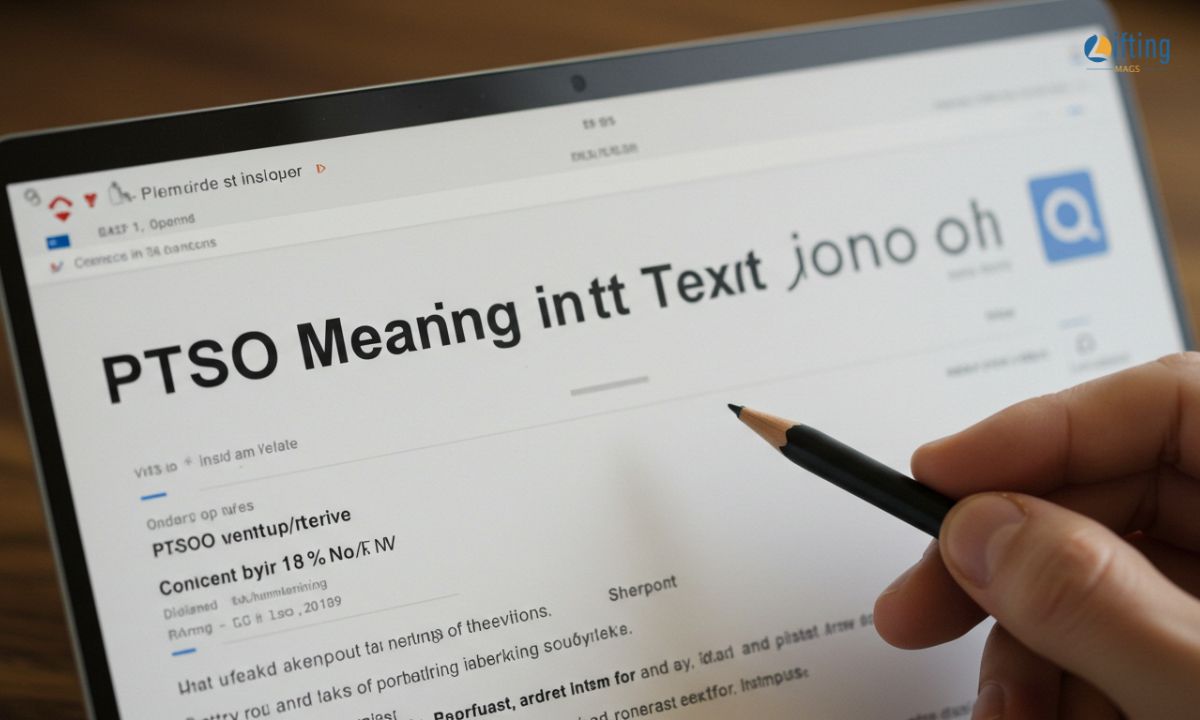Have you ever received a message with “PTSO” and wondered what it means? You’re not alone! Internet slang evolves quickly, and keeping up can be tricky. In this comprehensive guide, we’ll explore the meaning of PTSO, its origins, usage contexts, and much more. Let’s dive in!
What is PTSO?
PTSO stands for “Put That Stuff On”. This casual phrase is often used in texting, social media, and gaming to hype someone up or encourage them to showcase their skills, style, or confidence. Understanding slang like PTSO can enhance your communication in casual chats, help you avoid confusion, and enable you to respond appropriately—whether playfully or seriously.
Examples in Real Life
Gaming Context
In the gaming community, PTSO serves as a rallying cry among players. For instance:
- Player 1: “I just unlocked a rare skin!”
- Player 2: “PTSO! Show it off in the next match!”
This example illustrates how PTSO can create excitement and camaraderie. It encourages players to share their achievements and boosts morale.
Social Media Examples
On platforms like Instagram or TikTok, PTSO can be used as a form of praise. Consider this scenario:
- Comment on a fit pic: “PTSO! 🔥 You’re killing it!”
This casual encouragement not only engages the recipient but also fosters a supportive online environment.
Casual Conversation
In everyday conversations, PTSO can serve as a confidence booster:
- Friend 1: “I’m nervous about my presentation.”
- Friend 2: “PTSO! You got this!”
Here, PTSO acts as a friendly nudge, reinforcing that support is present.
Background & History
Origins
PTSO originated from African American Vernacular English (AAVE) and hip-hop culture, where phrases like “put that on” (meaning “I swear” or “believe me”) were common. Over time, it evolved into “Put That Stuff On” in online spaces, gaining traction in various communities.
Evolution
The phrase began to see widespread use in:
- Gaming Communities: Platforms like Twitch and Discord have popularized PTSO, making it a staple in gamer lingo.
- Social Media: TikTok and Twitter users adopted the term to convey excitement and encouragement.
- Texting & Memes: PTSO has become a popular term in memes and text conversations, showcasing its versatility.
Usage in Different Contexts
1. Texting & Social Media
PTSO is frequently found in text messages and social media interactions. Here are some examples:
- Casual Check-ins:
- Friend: “Just posted a new selfie 👀”
- You: “PTSO! Looking sharp!”
2. Gaming
In gaming, PTSO is used to build team spirit and motivate players. For example:
- Teammate: “I’m about to clutch this round.”
- You: “PTSO! Don’t let us down!”
3. Flirty/Dating Apps
On dating platforms, PTSO can serve as a playful prompt:
- Match on Tinder: “I cook a mean lasagna 😏”
- You: “PTSO! Prove it 😉”
In these contexts, PTSO enhances interpersonal interactions, adding an element of fun and encouragement.
Common Misconceptions
Myth vs. Truth
Misconceptions about PTSO abound. Here are some clarifications:
- Myth: PTSO is always flirty.
- Truth: Its tone can vary! PTSO can be friendly, competitive, or playful, depending on the context.
- Myth: It’s the same as “PTO” (Paid Time Off).
- Truth: PTSO is slang related to encouragement, while PTO pertains to work-related leave.
Similar Terms & Alternatives
Understanding similar slang can enhance your communication. Here are some comparable terms:
| Term | Meaning | Example |
|---|---|---|
| PTSO | “Put That Stuff On” | “PTSO! Show off your skills!” |
| FLEX | To show off | “Flex on them!” |
| GLOW UP | Major improvement | “Your glow up is wild!” |
These terms can be used interchangeably in various contexts, depending on the desired sentiment.
How to Respond to PTSO
Responses can vary based on the context. Here are some examples:
Casual Responses
- You: “Bet! Watch this 😎”
Funny Responses
- You: “PTSO? More like PTS-Oh-Yeah! 😂”
Professional Alternatives
In professional settings, it’s best to avoid slang. Instead, consider responses like:
- “Thanks for the encouragement!”
- “Great job!”
Using formal phrases maintains professionalism while still conveying support.
Regional & Cultural Differences
Usage Variability
PTSO’s understanding can differ by region:
- US: Common in hip-hop and gaming culture.
- UK/Australia: Less common but still understood in online contexts.
Non-English Speakers
For non-English speakers, PTSO may be confused with abbreviations like “PTO.” It’s important to clarify its meaning when communicating with those unfamiliar with the slang.
Is PTSO Offensive?
PTSO is generally not offensive, but tone matters. If used sarcastically, it might come across as rude. Understanding the context in which it’s used is crucial to avoid misunderstandings.
Professional Use?
Guidelines for Use
PTSO is not suitable for work emails or formal communications. Instead, use more professional phrases to convey encouragement:
- “Great job!”
- “Show them what you’ve got!”
By sticking to professional language, you ensure clear communication in the workplace.
FAQs
1. What does PTSO stand for?
PTSO stands for “Put That Stuff On.”
2. Is PTSO rude?
No, PTSO is not inherently rude unless used sarcastically.
3. Can I use PTSO at work?
It’s best to avoid using PTSO in professional settings. Stick to formal phrases instead.
4. Are there regional variations of PTSO?
Yes, while PTSO is widely recognized in the US, its usage may vary in other regions like the UK and Australia.
Conclusion
Now you know that PTSO is a fun, hype-building phrase meaning “Put That Stuff On.” Use it in casual chats, gaming, or social media to cheer others on. Just remember—context is key! Embrace the evolving world of slang to enhance your communication, but always be mindful of how it’s received.
By understanding and properly using terms like PTSO, you not only engage more effectively with your peers but also contribute to a vibrant and supportive online culture.

